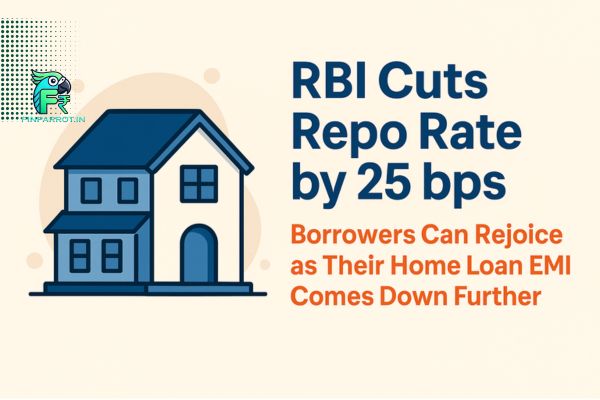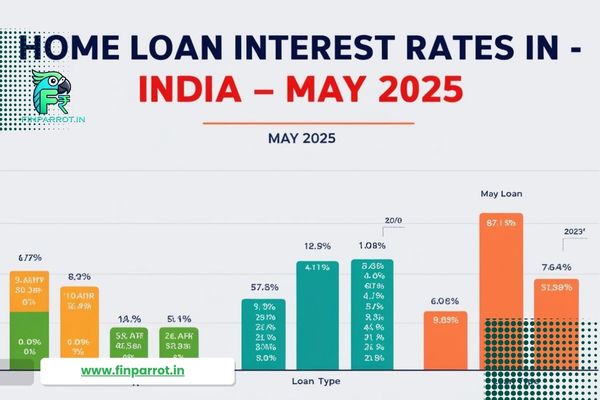Introduction
CIBIL score is one of the most important factors in deciding your loan eligibility. A good score (750+) improves your chances of approval and helps you get lower interest rates. If your score is low? Don’t worry! This article will help you understand why CIBIL matters for your loan, how it works in loan apps, and how to improve it effectively.
Have you ever applied for a loan or tried to understand personal finance? If so, you’ve probably come across the term ‘CIBIL score.’ But why does it matter so much? If you’re using loan apps, your CIBIL score can decide whether you get approved, how much you can borrow, and at what interest rate. So, if you’re looking for better loan offers, improving your score should be your first step. With instant loan apps making borrowing easier, your CIBIL score has become even more important. This guide explains a CIBIL score, why loan apps prioritize it, and how to improve it. Think a low CIBIL score means no loan? Not always! Fintech apps now look at your transactions, spending habits, and even rent payments to assess your creditworthiness
Understanding Your CIBIL Score
In general, the credit scoring model is calculated based on a few key factors, which range between 300 and 900.
Payment History (35%): Timely repayment of loans and credit card bills.
Credit Utilization (30%): The percentage of credit limit you use.
Credit Age (15%): The longer your credit history, the better.
Credit Mix (10%): A mix of secured (home/car loan) and unsecured credit (personal loans, credit cards).
Credit Inquiries (10%): Frequent loan applications can hurt your score.
What Do the Numbers Mean?
750-900: Excellent – Easier loan approvals & lower interest rates.
650-749: Good – Eligible for most loans but with stricter terms.
550-649: Average – Higher interest rates and limited loan options.
300-549: Poor – Loan approval chances are very low.
Why Do Loan Apps Check Your CIBIL Score?
1. Assessing Creditworthiness
Loan apps examine your CIBIL score to determine how likely you are to repay on time.
A high score tells lenders you’re trustworthy, while a low score can make them worry about whether you’ll repay on time.
2. Determining Loan Eligibility
Different loans have varying CIBIL score requirements:
Personal loans: Often require 700+.
Business loans: Usually demand 750+ (depending on the loan amount).
Low-credit loans: Some loan apps for low CIBIL scores offer approvals but with higher interest rates.
3. Impact on Loan Amount & Interest Rates
Higher scores provide significant benefits:
Higher loan amounts approved.
Lower interest rates—often 1–2% less, which can save thousands over time.
Flexible repayment options.
For example, someone with a 750+ CIBIL score may qualify for an instant loan without delays. In contrast, a borrower with a 600 score may face rejections or higher interest rates.
4. Faster Loan Approvals
Borrowers with strong scores often receive instant approvals and disbursals within minutes without lengthy verifications or pre-approved offers.
How to Improve Your CIBIL Score for Loan Apps
- Pay Your Bills on Time – Every Time
Late payments can seriously hurt your score, even if it’s just once. Set up auto-pay for your EMIs and credit card bills to avoid missing due dates. If auto-pay isn’t an option, use reminders. Always try to pay your full credit card bill—not just the minimum amount! - Keep Your Credit Card Usage Below 30%
Maxing out your credit card sends a red flag to lenders. Try to keep your spending under 30% of your total credit limit. If you need more flexibility, request a credit limit increase—but don’t use the extra credit unless necessary. Also, spreading expenses across multiple cards helps keep utilization low. - Avoid Too Many Loan Applications
Each loan or credit card application triggers a hard inquiry, which can temporarily drop your score. Instead of applying everywhere, check for pre-approved loan offers that use soft inquiries (these don’t impact your score). Apply for credit only when necessary. - Check Your CIBIL Report for Errors—They Happen!
Mistakes on your credit report can unfairly drag your score down. Review your report every few months and dispute any inaccuracies, such as:
✅ Loans you never applied for
✅ Payments wrongly marked as overdue
✅ Incorrect personal details
How to Fix It?
Get your free CIBIL report from their official website.
Spot any mistakes and raise a dispute online.
Follow up until it’s corrected.
- Loan Apps Use More Than Just CIBIL
Don’t have a high CIBIL score? Some loan apps consider alternative data, such as:
Bank or UPI transaction history
Rent and utility bill payments
Your online shopping habits
- Maintain a Healthy Mix of Credit
Lenders like to see a balance between secured (home/car loan) and unsecured credit (personal loans, credit cards). If you’ve only taken personal loans, consider a small secured loan (like a gold or FD-backed loan) to diversify your credit profile. - Don’t Close Old Credit Cards
Thinking of closing an old credit card? Hold on! Older accounts increase your credit history length, which is good for your score. Even if you don’t use the card often, keep it active with small purchases and timely repayments. - Settle Old Dues & Avoid ‘Settled’ Loan Status
If you have overdue loans, clear them ASAP or convert them into EMIs. Avoid settling loans for less than what you owe—it’s better to have a ‘closed’ status than a ‘settled’ one on your credit report. - Use Fintech Apps to Build Your Score
Apps like CRED, Paytm Postpaid, LazyPay, OneScore, and CreditMantri can help track your credit score and offer improvement tips. Some also provide small credit lines, which—when repaid on time—can boost your score. - Avoid These Common CIBIL Score Myths!
❌ Paying off a loan won’t instantly boost your score—it takes time to update.
❌ Checking your own CIBIL score won’t lower it (only lender inquiries affect it).
❌ A high salary doesn’t mean a high CIBIL score—your repayment habits matter more.
How Long Does It Take to Improve Your CIBIL Score?
- Minor Improvements (e.g., reducing credit utilization) – 1 to 3 months
- Moderate Fixes (e.g., timely repayments, clearing old dues) – 3 to 6 months
- Major Score Recovery (e.g., fixing default history, improving credit mix) – 6 to 12 months
Credit Bureaus in India: CIBIL, Experian, Equifax & CRIF High Mark
Most people know about CIBIL, but three other credit bureaus also track your credit history in India. Lenders may check any of these scores when you apply for a loan.
CIBIL (TransUnion CIBIL)
The most commonly used credit score in India. Score range: 300 to 900.
Experian
A globally recognized credit bureau. Score range: 300 to 850.
Equifax
Another major credit bureau in India. Score range: 300 to 900.
CRIF High Mark
An Indian credit bureau also assigns credit scores, generally ranging between 300 and 900.
CIBIL FAQ’S
Is 600 a good CIBIL score?
No, 600 is considered low, and approval for loans may be difficult or come with higher interest rates.
Is a good CIBIL score enough to get a low-interest loan?
A good CIBIL score helps, but it's not the only factor. Lenders also consider income, debt-to-income ratio, employment stability, and loan type when deciding interest rates.
Conclusion
Improving your CIBIL score requires discipline, but it’s entirely possible. With consistent effort, you can unlock better financial opportunities, enjoy stress-free loan approvals, and secure lower interest rates. Whether you’re just starting your credit journey or recovering from past mistakes, the right steps today can lead to a financially secure tomorrow.
Check your CIBIL score today and start improving it now!
Most Reading Topics
Personal Loan Guide in 2025 | 5 Best Loan Apps | RBI’s New Loan Rules 2025















